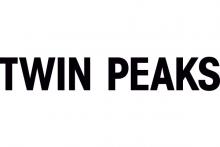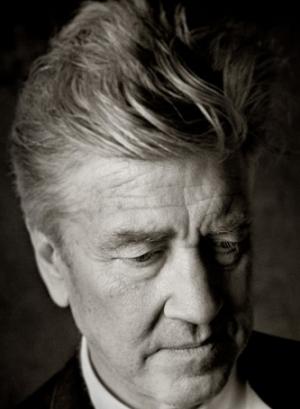Most know David Lynch as one of cinema’s most original talents, but he is also a prolific visual and musical artist whose boundless creativity spills over into the realms of painting, photography, songwriting and more.
His work as an artist provides a deeper understanding of his vision and also reveals a vital source of inspiration for his instantly recognizable filmmaking aesthetic. A major retrospective of Lynch’s artwork — called “The Air Is on Fire” — was displayed in Paris at the Fondation Cartier in 2007. Last year, an extensive collection of his drawings, paintings and photographs was featured in the book Dark Splendor.
With two of his most recent endeavors, Lynch explores more of his “hidden” talents. In October 2011, he helped launch Club Silencio, a Parisian nightclub named for the club featured in his psychological thriller Mulholland Drive. He not only designed the club’s interior, but also much of its furniture. In fact, Lynch unveiled his first furniture collection in 1997 at Salone del Mobile, the famous furniture exhibition held annually in Milan, Italy.
The second project, Crazy Clown Time, marked Lynch’s solo debut as a musical artist. The album’s 14 original songs were written, performed and produced by Lynch, who is an adept self-taught musician. Indeed, music figures prominently throughout Lynch’s career, mainly in the form of collaborations: composer Angelo Badalamenti (Twin Peaks and numerous other projects); singer Julee Cruise (Floating Into the Night); musician John Neff (BlueBob); Polish pianist Marek Zebrowski (Inland Empire); and musical artists Sparklehorse and Danger Mouse (Dark Night of the Soul).
Music has provided a constant source of inspiration for Lynch, who was born in Montana, but started his journey as an artist in Philadelphia. While there in 1966, he began studying painting at the Pennsylvania Academy of Fine Art. Later that same year, he made his first short film, Six Men Getting Sick.
He moved to Los Angeles in 1971 to study filmmaking at the AFI Conservatory. During his time there, Lynch began working on what would become his first feature, Eraserhead. Released in 1977, it became an underground sensation and led to his next project, The Elephant Man (1980). A commercial success, the film also garnered eight Academy Award nominations, including Lynch’s first for Best Director. His second nomination came in 1986 for Blue Velvet, a film he wrote and directed.
In 1990, the filmmaker turned to television to create Twin Peaks, the influential series that famously asked: “Who killed Laura Palmer?” The same year, Lynch also released Wild at Heart, which won the Palme d’Or, the highest honor bestowed by the Cannes Film Festival. At the festival in 2001, he won Best Director for Mulholland Drive, a film that also earned Lynch his third Academy Award nomination for Best Director. His most recent movie, Inland Empire, was released in 2006. The same year, he won the Golden Lion from the Venice Film Festival for his contributions to cinema. Previous recipients of the honor include several filmmakers who influenced Lynch, including Federico Fellini, Billy Wilder and Stanley Kubrick.
He launched the David Lynch Foundation For Consciousness-Based Education and Peace in 2005. A longtime practitioner of transcendental meditation, Lynch established the group to promote the technique among adolescents. He wrote about his experiences with TM in the 2005 book, Catching the Big Fish, donating all his royalties to the foundation. He continued raising funds for the organization in 2009 by hosting “Change Begins Within,” a benefit concert in New York City that featured performances by Paul McCartney, Ringo Starr, Moby, Eddie Vedder and more.
Always eager to try new mediums, Lynch began exploring the Internet’s artistic possibilities in 2001 by producing the Web-based shows Dumbland and Rabbits. A decade later, he directed a Duran Duran concert that was streamed live on YouTube. He re-launched his Website (www.davidlynch.com) as a way to showcase the David Lynch Music Company. The site serves as a musical archive for his label and also features a number of rare and unreleased collaborations Lynch has recorded over the years.
More about David Lynch at:
IMDb
Wikipedia








